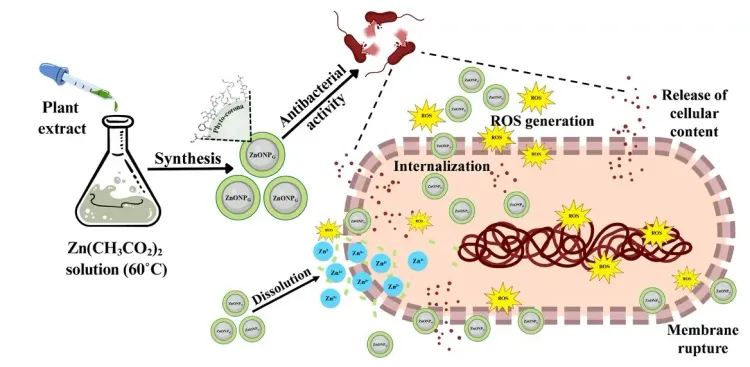Could NIT Rourkela Researchers Have Found a Green Solution to Antibiotic Resistance?

Synopsis
Key Takeaways
- Eco-friendly synthesis of zinc oxide nanoparticles using medicinal plant extracts.
- Effective against superbugs that resist traditional antibiotics.
- Promotes sustainable and locally-sourced solutions.
- Potential applications in healthcare, sanitation, and food preservation.
- Utilizes India's rich biodiversity.
New Delhi, Oct 15 (NationPress) In an innovative approach to combat antimicrobial resistance, researchers at the National Institute of Technology (NIT) Rourkela have harnessed extracts from medicinal plants to create powerful antibacterial agents that are both environmentally safe and effective.
The excessive use of traditional antibiotics has led to the emergence of superbugs that resist these treatments.
The findings, featured in the Surfaces and Interphases journal, adopted an eco-friendly methodology to generate zinc oxide nanoparticles -- known for their ability to damage bacterial cells and interfere with their normal functions.
Instead of employing harsh chemicals, the research team utilized extracts from the leaves and petals of Marigold, Mango, and Eucalyptus to convert zinc salts into zinc oxide nanocrystals, enriched with phytocompounds from the extracts.
The nanoparticle extracts, particularly those derived from marigold petals, displayed twice the effectiveness in killing bacteria compared to chemically synthesized nanoparticles or plant extracts alone.
These extracts not only facilitated the synthesis of nanoparticles but also stabilized them through the formation of a herbal shield or phytocorona. This mechanism helps regulate the release of zinc ions, ensuring consistent antibacterial action.
The flavonoids, alkaloids, tannins, and phenolic phytocompounds present in these extracts possess inherent antibacterial properties, leading to a dual assault on bacterial survival.
“The green-synthesized zinc oxide nanoparticles with phyto-corona present a sustainable and effective antimicrobial platform, providing a promising answer to antimicrobial resistance while utilizing the medicinal properties of surface-adsorbed plant-derived phytocompounds,” stated Prof. Suman Jha, Associate Professor in the Department of Life Science at NIT Rourkela.
This method of utilizing indigenous plant extracts makes the technology easily scalable. It promotes homegrown, sustainable solutions that lessen reliance on imported medications and synthetic antibiotics, which often create more complications than they resolve.
“Our aim is to create scalable, affordable, and environmentally safe antimicrobial materials that can be utilized in healthcare, sanitation, and food preservation. By leveraging India’s vast biodiversity and native plant resources, we strive to develop self-sufficient innovations that significantly contribute to global health and sustainability objectives,” Jha remarked.










